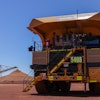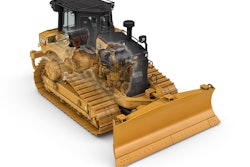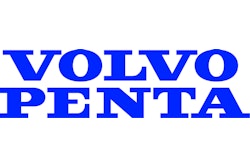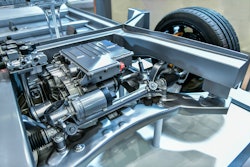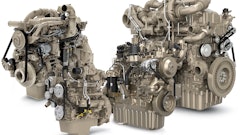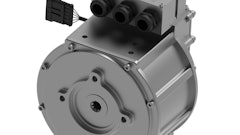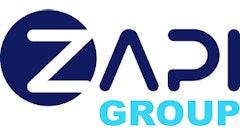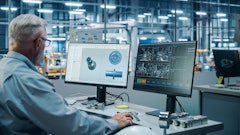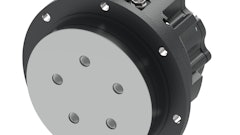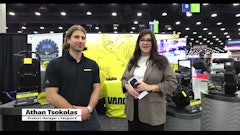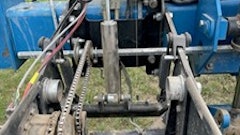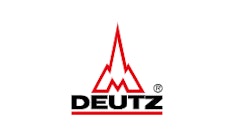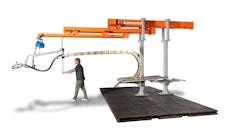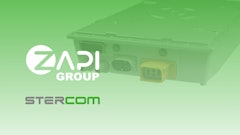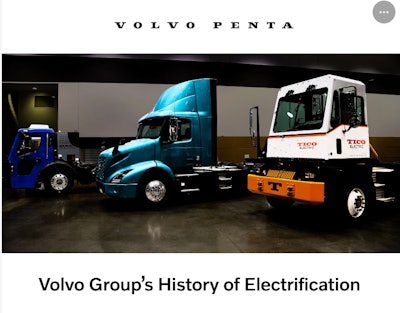
Sure, you know about the efficiency benefits of an electrified material handling fleet. That's a given. But if you think that's all there is to get out of electric, you're missing some other ways it's tailored to your needs. Electric drivelines, like those perfected by Volvo Penta and seen in TICO terminal tractors and other equipment, also offer these five benefits.
1. Reliability
Electric drivetrains have fewer moving parts than diesel. Depending on the models being compared, you’re looking at 80-90% fewer moving parts. . which translates to higher reliability, especially where some automotive parts have been hurt by supply chain disruptions.
And if you’re concerned about getting into “new” technology, keep in mind the first EVs were invented in the early 1800s. They've been the road since the late 1800s. Even what we think of as early mass-market EVs, like the Toyota Prius, have now been around for 30 years. [GU1] [GU2] Volvo Penta electric drivelines are proven Volvo Group technology used in Volvo Trucks, Volvo Construction Equipment and buses with hundreds of thousands of testing hours and real-world use.
TICO, the leading terminal tractor manufacturer, relies on Volvo Penta for their electric driveline solution in the Pro-Spotter Electric, which went into production in 2023. Reliability is a hallmark of both brands. The partnership marries the best-selling terminal tractor model in the U.S. with the reputation of Volvo Penta, which specializes in complete drivelines, not just individual components. It’s a recipe for reliability.
2. Easy Maintenance
The simplicity also means easier maintenance. With fewer moving parts in electric engines than diesel, there is less wear and tear. And with electric, there are no complex combustion systems to investigate. The electric driveline used by Tico has oil and filter changes required on the 802 gearbox and air compressor and a cooling system that needs to be maintained. That’s it.
In general, electric drivelines have a simpler design – no fuel injection systems or exhaust components. All of that leads to faster, easier diagnostics and maintenance.
It's not even just the powertrain that’s easier. Electric vehicles use regenerative braking to capture energy when slowing down. This reduces brake wear, extending lifespan and reducing maintenance.
And as a new generation of mechanics and technicians join the industry ranks, EV maintenance competency grows. Almost every training program today includes EV or offers certifications and coursework for later career professionals. TICO and Volvo Penta partnered to develop a dealer EV driveline training program.
3. Power
Electric material handling options bring power to the job in more ways than one, depending on your definition:
· Instant torque – Electric engines offer more rapid acceleration than internal combustion engines.
· Top speed – Electric vehicles are comparable to their diesel counterparts.
· Continuous power – With seamless shifting within the gearbox, power remains constant.
The TICO Pro-Spotter Electric, with its Volvo Penta driveline, is evidence of this. Just look at the specs. The combined electric propulsion motors deliver 150 kW, which translates to roughly 200 horsepower, the same as the Pro-Spotter’s diesel, LNG and CNG models.
And the Volvo Penta EPT802 two-speed gearbox provides peak torque at 5400 Nm (3983 lb.-ft), with a continuous output of 3400 Nm (2500 lb.-ft) in first gear. The second gear offers a peak torque of 3000 Nm (2213 lb.-ft) with 1800 Nm (1332 lb.-ft) continuous output. That’s similar to an 18-wheel semi-truck. And its ample power for the demanding tasks of a terminal tractor, including fast acceleration and maneuverability, even with heavy loads, and the ability to handle inclines within the port or yard environment.
4. Operator Friendly
For the operator, there’s essentially no difference in what they see in an electric vehicle. That’s especially important when you’re talking about a best-selling model like the TICO Pro-Spotter, known for its spacious cab that is both easy to access and has a full range of view of the port or yard.
Also, as TICO’s COO Jim Grooms points out, the operator won’t see capability differences “but gets all the technology advancements that an electric vehicle brings to market.”
The things an operator might notice, though, are all an improvement – a smoother, quieter, smell-free driving experience compared to diesel. The seamless two-speed gearbox means changes while the electric motor is at low speed can be up to half as loud as the internal combustion engine. And operators who are more sensitive to diesel exhaust, particularly those with asthma or allergies, won’t find they’re exposed to any hydrocarbons with electric.
5. Scalable Growth
Electric material handling solutions offer unexpected advantages, as the TICO Pro-Spotter Electric is showing users. And this is just the start. Volvo Penta is championing electrification with a full-system approach to electric drivelines, from development to installation and support.
Backed by the Volvo Group, that future includes high-volume battery manufacturing, a full line of e-accessories for scalable electrification and supporting services like charging infrastructure. The Volvo Group is electrifying mobility solutions across commercial vehicle segments, from battery-electric trucks and buses to Volvo Construction Equipment’s electric and hybrid compact excavators and wheel loaders.
By taking a comprehensive and multi-faceted approach, Volvo Group and Volvo Penta are leading the charge for electrification together, as Volvo Penta’s Darren Tasker, VP of industrial, says “to achieve a technology advanced powertrain portfolio.”
It could be worth mentioning here (and a good lead-in to the next paragraph) that Volvo Penta electric drivelines are proven Volvo Group technology from Volvo Trucks, Construction Equipment and Buses -- with hundreds of thousands of testing hours and real-world use.
Volvo Group’s History of Electrification
From leading the charge on electrification in 2010 to winning the 2024 Truck of the Year award with their Volvo FH Electric - the first ever electric truck to win the award - Volvo has a long history of helping to move the automotive and construction industries forward. Learn more:

